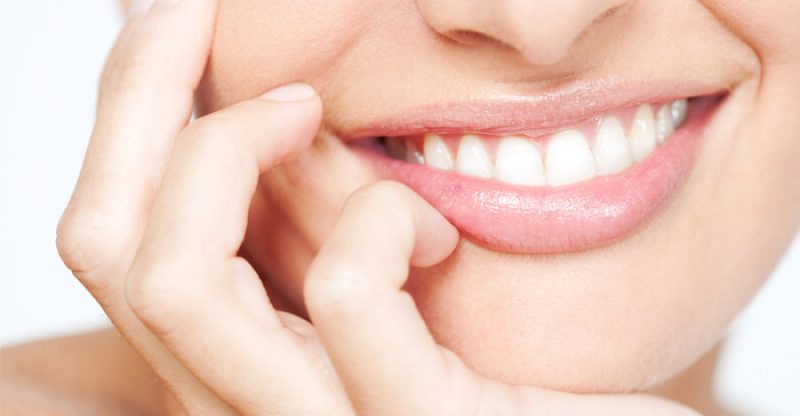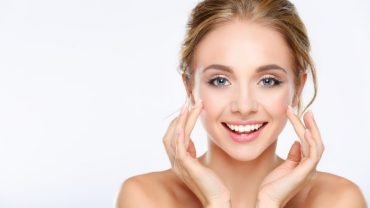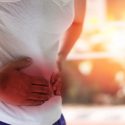23 Tips for Healthier, Stronger, More Beautiful Teeth
Teeth are always in style.
Dr. Seuss
Dr. Seuss was correct; teeth are always in style, which is why we all are obsessed with maintaining a red-carpet worthy smile.
When we smile, we want our pearly whites to dazzle a room and make us instantly memorable.
Yet, for many people, maintaining a glamorous smile can feel impossible.
There are so many different factors that can decrease the health of your teeth and it can seem overwhelming to know what to do and where to start.
Over the years your dental needs will change and the health of your teeth and gums is correlated with a multitude of other health issues that include your hormones and your heart.
However, there is more to taking good care of your mouth than just brushing your teeth (although that obviously helps), so here are 23 steps to healthier, stronger, and more beautiful teeth.
Learn How to Brush
Despite the fact that you have (hopefully) been doing it twice a day for many, many years, there are far too many adults who don’t correctly know how to brush their teeth.
Your teeth will thank you if consider the following toothbrushing best practices:
- First of all, make sure you are using a soft brush that has rounded nylon bristles.
- With this brush, make gentle circular motions at a 45-degree angle to your gum line in shorter, tooth-width strokes. Keep it soft, as long horizontal swipes at your gums will potentially damage them.
- Start by brushing the outer tooth surfaces before moving on to the inner tooth surfaces and then the chewing surfaces.
- In order to reach the backs of your teeth, use the tip of the brush and stroke gently up and down.
- Don’t rub hard against the teeth (one of the biggest mistakes that people make). Unfortunately, this can force your gums away from your teeth and scrub away your enamel.
- Brush your teeth for at least two minutes to ensure that you are touching all parts of the tooth surface as well as the front, tops, and backs.
- Don’t neglect any tooth or part of your gums.
Brush at the Appropriate Times
There is a reason we are taught to brush twice a day – once in the morning and once before bed – as these are the two most crucial times.
You want to brush right when you get out of bed to brush off plaque and bacteria (that causes morning breath!) that may have built up as you slept.
Additionally, each night, brush your teeth before you get into bed because saliva (which keeps cavity-causing plaque off teeth) dries up at night.
As such, you want to clean off all the plaque prior to snoozing.
If you are especially sensitive to gum disease and cavities, you should brush your teeth immediately after eating dinner and then again right before you go to bed.
Brush with Baking Soda Once a Week
Once a week, bring out the baking soda and use it as you would toothpaste.
While it may seem a little unusual, this will actually remove any stains you already have and assist in whitening your teeth.
Change your Toothbrush
Be honest with yourself: how long have you been using your current toothbrush?
You want to be changing it (or, if you have an electric toothbrush, the head) every two to three months.
Failure to do this will mean that you are merely transferring bacteria back into your mouth.
Ideally, you want to be using an electric toothbrush as it removes plaque more efficiently than a regular toothbrush due to the rotating and oscillating movement of its head.
While it may seem slightly excessive, in reality, having the appropriate toothbrush and toothpaste will make a notable difference in the health of your teeth.
This is not an area of your health that you want to skimp, as your teeth will, unfortunately, suffer in the long run.
Commit to Daily Flossing
Too many people disregard the greatness of flossing, despite all the research that proves its importance.
What does flossing do?
Well, while the food particles and plaque buildup are still soft, flossing can remove them.
Otherwise, if it remains on your teeth, the bacteria will develop throughout the night.
At this point, if the plaque is permitted to harden, it will transform into tartar.
This is not good news for you and your teeth as a hygienist or dentist can only remove tartar during a professional cleaning.
Not only does daily flossing severely reduce the number of cavities forming bacteria and dangerous plaques; it also decreases the risk of periodontitis, a more severe gum infection that can potentially compromise more than just your teeth.
For the majority of people, only flossing at night is enough.
However, if you are predisposed to tartar buildup or gum disease, then you should also be flossing in the am.
Unfortunately, intermittent flossing provides minimal benefits.
So, if you are serious about your oral health, you need to commit to doing it each day.
If you’re starting you find that flossing is really hurting or making your gums bleed, don’t give up!
Your gums will become more robust the more you floss.
Make Regular Appointments with Your Dentist
Even if you are the busiest person in the world, you need to make regular appointments with your dentist.
Not only will he or she be able to spot signs of serious illness but your dentist will also assist in keeping your teeth clean and provide you with information about new research or products.
More importantly, your dentist will work with you to ensure your oral health remains in prime condition.
Every six months, make sure to have check-ups with your dentist.
If you already have an oral problem, this frequency may need to be increased.
Over 40-year-olds are more prone to oral cancer.
If you are of this age, your dentist will also look for symptoms of oral cancer, such as unusual swelling, sores, or painless lesions.
Additionally, if you had dental work done years ago (such as fillings or crowns), they may need to be replaced as they wear out.
Rinse with a Therapeutic Mouthwash
Admittedly, most of the over-the-counter mouthwashes are merely designed to disguise your bad breath and aren’t as focused on doing anything to enhance your oral health.
On the other hand, therapeutic mouthwashes contain unique ingredients that not only strengthen teeth but also assist in treating certain oral health ailments.
So, by rinsing with a therapeutic mouthwash at night, you are taking another step towards keeping your teeth clear of plaque and cavities and your gums protected from gingivitis.
Speak with your dentist when deciding which mouthwash is the one for you.
Use a Tongue Scraper Each Morning
A celebrity favorite, tongue scrapers eliminate tongue plaque and therefore freshen your breath!
Use one each morning to get rid of your bad ‘morning’ breath.
You see, morning breath is the result of a buildup of bacteria on your tongue, which a daily tongue scraping session will eliminate.
Eat a Healthy Diet with Calcium and Vitamin D
Not only does a healthy diet improve your heart health, manage or prevent diabetes, and improve a multitude of health conditions, but it also is vital for maintaining stronger and healthier teeth and gums.
Age is the most common reason people lose a tooth (or teeth), because as you age, the strength of your teeth, the enamel, and the capability of the jawbone to support the teeth tend to wane.
However, failure to take care of one’s teeth properly and bone loss are two other typical reasons.
In order to maintain strong bones, make sure you are eating a healthy diet with plenty of calcium and vitamin D.
Consuming a balanced diet with meat, fruits, vegetables, and dairy will equip you with all of the nutrients that your teeth require.
Some of the important nutrients you need to maintain healthy teeth are magnesium, phosphorus, and of course, calcium and vitamin D.
Eat Foods that Clean Teeth
Did you know that there are foods that actually clean your teeth while you are eating them?
Firm and crisp foods such as apples, raw carrots, celery, and popcorn are some of these “clean teeth” foods.
For them to be the most effective, bite into these foods as the last portion of your meal especially if you know you won’t be able to brush your teeth right after dinner.
Be Cautious of Acidic Foods
You need to control your eating to keep your smile shining brightly.
Unfortunately, snacks not only add to your physique; they also make your mouth more acidic.
Why are acidic foods bad for your teeth?
Well, the acid breaks down the tooth enamel, exposing the dentin and permitting bacteria to reach the tooth surface.
This, in turn, heightens the likelihood of tooth decay and cavity formation.
Hence, it is important to remember that having tooth enamel is essential for keeping your teeth healthy.
Although this doesn’t mean you have to avoid acidic foods entirely, do pay attention to recognize which foods are acidic in order to help you take control of your portions.
And, as a general health rule of thumb, try to cut down on the snacks.
Stop Smoking
There are many reasons why you should stop smoking – after all, it has adverse effects on the bulk of your body organs.
However, there is nowhere the results are more apparent than in your mouth.
Not only does smoking turn your teeth a yellowish tint; it also ensures you have repulsive breath.
Be Cautious of Over-bleaching
On the other spectrum to the yellow hues of smoking, you can also take the over bleaching a little too far.
While a small amount of bleaching can help you attain the shade of white you desire, after that, you don’t need to continue going – apart from a touch up once a year.
If you over bleach your teeth, then you are unquestionably going to damage them and increase their sensitivity.
Keep in mind; there is a limit to the level of “white teeth” you can achieve as you get older.
If you are unhappy with the whiteness of your teeth, consider professional teeth whitening from a trusted cosmetic dentist in your area.
Gargle Some Apple Cider Vinegar
Consuming apple cider vinegar in the morning has a multitude of proven benefits from boosting your metabolism to helping you keep your pearly whites healthy.
Every morning, gargle some apple cider vinegar to remove stains, whiten teeth, and kill bacteria in your mouth and gums.
While it may not be the most fabulous taste in the world, it will do wonders for your health.
After you have gargled – make sure to resume your tooth brushing as usual for healthy teeth.
Stop Drinking Sodas
Just cut the sodas out!
They have no nutritional value and are awful for all parts of your body.
When it comes to teeth, sodas (both the sugar-free and sugar-fill varieties) can damage your teeth due to the high acid content of the majority of these carbonated beverages.
As mentioned before, acid weakens your tooth enamel and makes it softer – which is problematic because tooth enamel is imperative for keeping your teeth healthy.
Drink at Least Two Liters of Water a Day
People of all ages should be drinking plenty of water throughout the day to keep all parts of your body working; doctors recommend drinking more when you are physically active or when you are feeling ill.
However, you may not realize how vital drinking a lot of water is for your teeth.
All that food and bacteria that is in and around your mouth? Water can help wash that away!
It also can help neutralize any acidity you have consumed (either through snacks, food, or sodas) that erode your tooth enamel and undermine the strength of your teeth.
After every meal, get into the habit of rinsing your mouth or gargling with water.
This will ensure you are getting rid of any leftover scraps and pieces from your mouth.
Drinking water after a meal will also assist in expediting the remineralization process that your teeth need to go through.
Furthermore, when you’re dehydrated or your mouth becomes and feels withered, you are at a higher risk for tooth decay.
Treat Dry Mouth
Occurring when the glands in the mouth that make saliva are not working correctly, dry mouth or xerostomia can lead to cavities, bad breath, gum disease and persistent discomfort.
While everyone occasionally has a dry mouth, it becomes a problem when the sensation never goes away and may be a sign that your mouth is finding it challenging to produce saliva.
Symptoms of dry mouth include:
- A dry or burning sensation in your mouth or throat;
- Difficulty chewing, swallowing, savoring or speaking;
- A dry tongue and cracked lips;
- Gum irritation or mouth sores;
- Frequent tooth decay;
- Bad breath.
Your mouth needs saliva to help protect your teeth.
While drinking water and avoiding tobacco or alcohol (which dry out the mouth) will help if you only occasionally have a dry mouth, if you have xerostomia, then you will need to purchase a particular product that is made specially to provide relief from this affliction.
Common causes of dry mouth include:
- Stress;
- Nervousness;
- Aging;
- Certain medications and aging.
To ascertain the cause, speak to your dentist or physician.
If it is caused by your medicine, then you may need to replace your medication or alter the dosage.
Alternatively, if it is a result of your salivary glands not working, then your dentist may prescribe an over-the-counter or prescription medicine to stimulate more saliva, or suggest using artificial saliva to keep your mouth wet.
However they suggest you treat it, you can guarantee you will be far more comfortable and will keep your teeth healthy and glistening.
Abstain from Grinding Your Teeth
If you have been grinding or clenching your teeth for years, it may be a habit that you deem impossible to break.
However, grinding or clenching your teeth (which often occurs without you realizing if you are stressed or anxious) can cause excessive wear and even cracking and chipping.
By the time you are in your late 30s and 40s, it will be easy for your dentist to notice if you have been grinding or clenching your teeth as areas of the tooth enamel will have declined and will be smooth.
If you believe this is a problem for you, consult your dentist.
They may recommend using a custom mouthguard and investigate other stress-management techniques.
Don’t Bite or Chew on Inedible Objects
Many people find themselves biting their nails or chewing on pencils especially when they are anxious, stressed, or just bored in a work meeting.
This habit, however, is (not surprisingly) not beneficial for your teeth.
Biting or chewing on these non-food objects will quickly wear down your tooth enamel.
Chew Xylitol Gum
Have you heard of xylitol gum?
Different from regular gum, xylitol gum helps in decreasing the chances of gum disease and tooth decay while also promoting saliva production.
This, in turn, increases the antibacterial forces in the mouth.
How does it do this? Well, xylitol is a sugar alcohol that deceives bacteria into believing that they can eat it.
However, bacteria can’t break down xylitol, which means they will perish if it’s the only variety of sugar around.
Go on a White-Teeth Diet
Everyone wants to have supermodel-status dazzling white teeth; but, in order to have them, you have to give up some things.
Red wine, black tea and coffee, cigarettes, and other tobacco products are all guilty pleasures that stain your teeth.
If you are uncertain if something is going to stain your teeth, then think of it this way.
If it is dark in color before it enters your mouth, then yes, it will plausibly stain your teeth.
Again, you don’t have to consume these foods.
But if you do eat them (and want to have white, healthy teeth), make sure to brush immediately and use a good bleaching agent which you can purchase in your dentist’s office or over-the-counter.
Additionally, eat one of the “clean teeth” foods mentioned above!
Pay Attention to Small Signs of Issues
What most people don’t understand is that if caught early, most oral health problems are treatable.
If you notice bleeding gums, excessive tooth sensitivity, a little lump on your gum, or even discolored teeth, then you want to go and have them checked out immediately – as there may be a more serious underlying cause.
Obviously, if there is a trauma emergency, that is one thing.
But, in order to evade non-traumatic dental emergencies, you need to pay attention to anything unusual or new your oral health signs to keep yourself in overall peak health.
Take Any (and All) Pain Seriously
No matter how insignificant you may believe it to be, never ignore dental pain.
Whether it is one of your tooth’s, your gum, or your jaw, pain signifies that your body is demanding attention.
Your dentist will be able to treat any issues right away, therefore preventing any ailments or diseases from getting any worse.
While no-one particularly likes going to the dentist (at least not in the same way as Disneyland), you are better to have the pain evaluated so that it can be treated as soon as possible.
Invest in Your Smile
In order to have healthy, strong, and beautiful teeth, you need to invest a small amount of time and effort into their upkeep, and then you will be on your way to maintaining a life-long healthy smile.
Prevention is better than cure.
But by following these tips consistently, you will be able to keep your teeth healthy and ensure your oral health is top-notch (reducing any future dental care expenses).
However, remember that a dentist will get to the root of any problem.
By looking for a local dentist in Brisbane or near you, you can be assured that you and your oral health are in good hands.
FDA Compliance
The information on this website has not been evaluated by the Food & Drug Administration or any other medical body. We do not aim to diagnose, treat, cure or prevent any illness or disease. Information is shared for educational purposes only. You must consult your doctor before acting on any content on this website, especially if you are pregnant, nursing, taking medication, or have a medical condition.
HOW WOULD YOU RATE THIS ARTICLE?







How many times per day is it recommended to floss? Only after meal? Should I floss if I have sensitive gums?
Is xylitol gum allowed for toddlers? My son eats too much sweet.